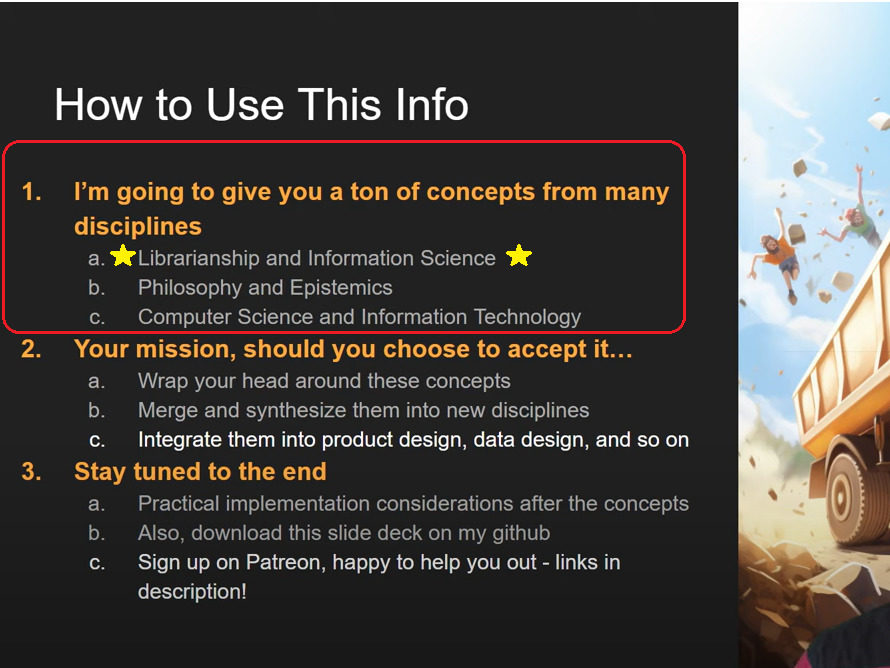South Central Roundtable
OU Law volunteered to host the South Central “Artificial Intelligence and the Future of Law Libraries” roundtable and so I was fortunate enough to be allowed to attend. This is the third iteration of a national conversation on what the new AI technologies could mean for the future of law libraries and (more broadly) law librarianship. I thought I would fill you in on my experience and explain a little about the purpose and methodology of the event. The event follows Chatham House Rules so I cannot give you specifics about what anybody said but I can give you an idea of the theme and process that we worked through.
Law Library Director Kenton Brice of OU Law elected to partner with Associate Dean for Library and Technology Greg Ivy and SMU to host the event in Dallas, TX because it was more accessible for many of the people that we wanted to attend. I’d never been to SMU and it’s a beautiful campus in an adorable part of Dallas – here’s a rad stinger I made in Premiere Pro:
TL;DR: If you get invited, I would highly recommend that you go. I found it enormously beneficial.
History and Impetus
The event is the brainchild of Head of Research, Data & Instruction, Director of Law Library Fellows Program Technology & Empirical Librarian, Cas Laskowsi at the University of Arizona (hereinafter “Cas”). They hosted the inaugural session through U of A’s Washington, DC campus. You may have seen the Dewey B. Strategic article about it since Jean O’Grady was in attendance. The brilliant George H. Pike at Northwestern University hosted the second in the series in Chicago. I know people who have attended each of these sessions and the feedback has been resoundingly positive.
The goal of this collaborative initiative is to provide guidance to law libraries across the country as we work to strategically incorporate artificial intelligence into our operations and plan for the future of our profession.
Cas, from the U of A Website
Methodology
The event takes the entire day and it’s emotionally exhausting, in the best way possible. We were broken into tables of 6 participants. The participants were hand-selected based on their background and experience so that each table had a range of different viewpoints and perspectives.
Then the hosts (in our case, Kenton Brice and Cas Laskowski) walked us through a series of “virtuous cycle, vicious cycle” exercises. They, thankfully, started with the vicious cycle so that you could end each session on a virtuous cycle, positive note. At the end, each table chose a speaker and then we summarized the opinions discussed so that the entire room could benefit from the conversations. Apparently, this is an exercise done at places like the United Nations to triage and prepare for future events. This process went on through 3 full cycles and then we had about an hour of open discussion at the end. We got there at 8am and had breakfast and lunch on-site (both great – thank you Greg Ivy and SMU catering) because it took the entire day.
We had a great mix of academic, government, and private sector presented at the event and the diversity of stakeholders and experiences made for robust and thought-provoking conversation. Many times I would hear perspectives that had never occurred to me and would have my assumptions challenged to refine my own ideas about what the future might look like. Additionally, the presence of people with extensive expertise in specific domains, such as antitrust, copyright, the intricacies of AMLaw100 firms, and the particular hurdles faced in government roles, enriched the discussions with a depth and nuance that is rare to find. Any one of these areas can require years of experience so having a wide range of experts to answer questions allowed you to really “get into the weeds” and think things through thoroughly.
My Experience
I tend to be (perhaps overly) optimistic about the future of these technologies and so it was nice to have my optimism tempered and refined by people who have serious concerns about what the future of law libraries might look like. While the topics presented were necessarily contentious, everybody was respectful and kind in their feedback. We had plenty of time for everybody to speak (so you didn’t feel like you were struggling to get a word in).
You’d think that 8 hours of talking about these topics would be enough but we nearly ran over on every exercise. People have a lot of deep thoughts, ideas, and concerns about the state and future of our industry. Honestly, I would have been happy to have this workshop go on for several days and cover even more topics if that was possible. I learned so much and gained so much value from the people at my table that it was an incredibly efficient way to get input and share ideas.
Unlike other conferences and events that I’ve attended this one felt revolutionary – as in, we truly need to change the status quo in a big way and start getting to work on new ways to tackle these issues. “Disruptive” has become an absolute buzzword inside of Silicon Valley and academia but now we have something truly disruptive and we need to do something about it. Bringing all these intelligent people together in one room fosters an environment where disparate, fragmented ideas can crystalize into actionable plans, enabling us to support each other through these changes.
The results from all of these roundtables are going to be published in a global White Paper once the series has concluded. Each roundtable has different regions and people involved and I can’t wait to see the final product and hear what other roundtables had to say about these important issues. More importantly, I can’t wait to be involved in the future projects and initiatives that this important workshop series creates.
I echo Jean O’Grady: If you get the call, go.



